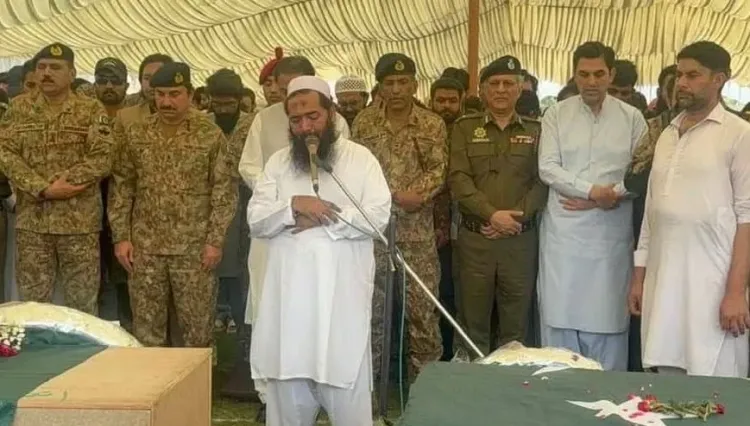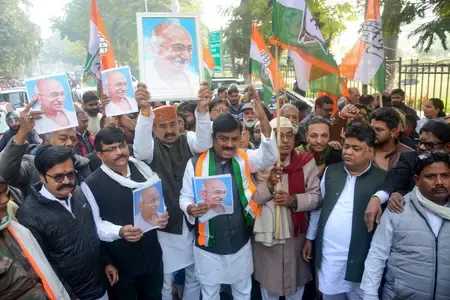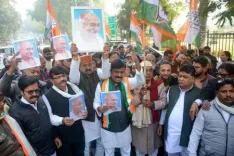Why Is Judea Pearl Questioning Pakistan's Mourning of Terrorists?

Synopsis
Key Takeaways
- Operation Sindoor targets JeM's infrastructure in Pakistan.
- Judea Pearl calls for clarity on the mourning of terrorists.
- The operation responds to a recent terror attack in Pahalgam.
- It highlights the ongoing struggle against terrorism.
- Questions of values and accountability arise in its aftermath.
New Delhi, May 9 (NationPress) India’s Operation Sindoor has delivered a significant strike against the terrorist infrastructure of Jaish-e-Mohammad (JeM) in Bahawalpur, Pakistan -- a group that has long been implicated in one of the most tragic events in the post-9/11 era: the horrific murder of American journalist Daniel Pearl.
The operation, initiated in retaliation for the lethal April 22 terror assault in Pahalgam, was reportedly focused on dismantling terror sites situated in Pakistan and POK, including a JeM facility intricately linked to numerous cross-border terror activities.
However, for many, this operation represents more than mere strategic retaliation. It’s a thread in a complex tapestry woven over two decades, connecting terror attacks, state complicity, and personal grief that transcends generations and borders.
On X, Judea Pearl, the father of the murdered journalist, shared a pointed critique, featuring a photograph of a funeral procession for the JeM terrorists eliminated in the Bahawalpur operation. Pakistani Army officials and other Muslim leaders are seen standing solemnly before the coffins.
“I wish these dignitaries could explain: 'What precisely are you mourning? What role models do you aspire for your children? What lessons have you gleaned from this individual?'” Pearl expressed.
Pearl’s grief is not theoretical. His son, Daniel, commenced his career at The Wall Street Journal in 1990, ultimately taking on assignments that led him deep into the intertwining worlds of terrorism and intelligence in South Asia. In 2002, while probing the connections between extremist factions and Pakistan's ISI, he was kidnapped and subsequently beheaded by terrorists affiliated with JeM.
At the core of Pearl’s murder was Ahmed Omar Saeed Sheikh, a British Pakistani militant with a disturbing history. Previously imprisoned in India for the kidnapping of Western tourists, Sheikh was released in 2000 in a hostage exchange during the hijacking of Indian Airlines flight IC-814. Within two years of his release, he lured Daniel Pearl to his demise.
On Friday, Foreign Secretary Vikram Misri addressed the media: “Jaish-e-Mohammad (JeM) was either directly or indirectly involved in the killing of Daniel Pearl.”
“The real link is through Ahmed Omar Saeed Sheikh, the British Pakistani jihadist who was held in India but was ultimately released in 2000. He was the architect of Daniel Pearl's tragic murder. These individuals, institutions, and connections are all intertwined. The attack on Bahawalpur, targeting the JeM facility, is, I would argue, a fitting response to this unfortunate incident,” Misri stated.
While Operation Sindoor may be recorded as another successful counter-terrorism operation, for the Pearl family, and indeed for many across the globe, it resonates on a profoundly deeper level.
As images from the funerals of the deceased JeM operatives circulate, Judea Pearl's question lingers heavily in the air: What are you truly mourning?










